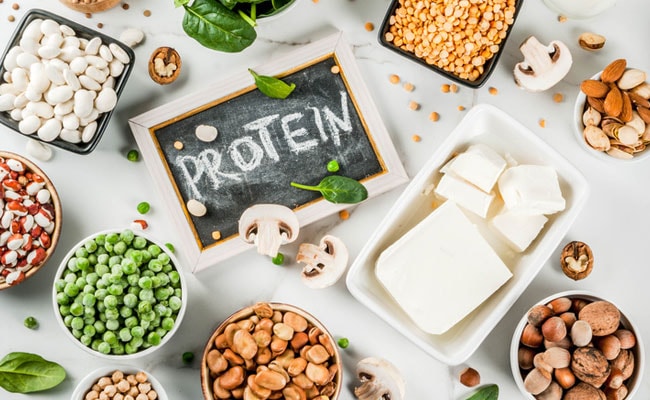
The nutrient protein is an extremely important part of our diet. Proteins are made up of amino acids and they exist throughout the body, in muscles, bones, skin and hair. They are beneficial for the growth and development and help to build, repair and maintain the body’s structures. Most importantly, it helps in building muscles, repairing tissues and promotes fullness. Broadly speaking there are two types of protein: animal based proteins and plant-based proteins. Foods derived from plants and animals can both provide protein, but there are some differences. In the following article let us explore some of the major differences between animal and plant protein. According to the Delhi based nutritionist, Pooja Malhotra “The building blocks of proteins are amino acids. There are 20 amino acids in all. While some amino acids can be synthesized by our bodies, some of them can’t be, we must obtain these from food, hence called essential amino acids.”
Also read: 5 Vegetarian High Protein Foods To Help You Stay Fit And Lose Weight Fast

The nutrient protein is an extremely important part of our diet.
Photo Credit: iStock
Plant-based protein:
Plant and animal proteins differ according to their amino acid contents. Amino acids are the building blocks of protein. When the body digests the proteins in food, it breaks them down into amino acids. Foods derived from plant are not the complete sources of protein, as they do not contain all nine essential amino acids. Most plant proteins are incomplete, which means that they do not contain one of the essential amino acids. For the growth and development of the body all the essential amino acids are needed. Even high protein plant sources like legumes, beans and nuts lack one or more essential amino acids. However, some plant-based foods, such as quinoa and buckwheat, are complete sources of protein. Therefore, it becomes important for vegetarians and vegans to mix their protein sources to ensure that they are getting all of the essential amino acids. But you need not worry as there are some plant-based proteins well which provide a lot of health benefits. These include nuts, legumes, buckwheat, quinoa, soya products and lentils.
She continues to say, “Plant proteins (lentils, beans, nuts) are incomplete, they lack one or more of the essential amino acids. This drawback can be overcome by combining the plant protein with some cereal/ grains. It has usually been found that amino acids lacking in pulses are present in grains and vice versa. So cereal-pulse combinations are found to have complete amino acid profile. Hence the humble khichadi is an excellent source of protein. Plant proteins too contain a number of other nutrients, besides the very important non-nutrient ‘fibre’. “
Animal-based protein:
Animal proteins have more nutritional content than plant protein. The best part about animal-based proteins is that they contain all the essential amino acids. For instance some milk products, fatty fish and poultry are excellent sources of Vitamin B 12, Vitamin D and essential omega 3 fatty acids. Some amazing sources of protein are eggs, poultry, fish, meat, chicken breast and dairy. Nutritionist further added, “Animal proteins (egg, fish, poultry, meats etc) are complete proteins, they contain all essential amino acids. They also are a good source of nutrients like Vit D, B12, heme iron, zinc etc. However, these are devoid of fibre. They also are abundant in cholesterol, which if now not considered to be a nutrient of concern. Red meats, especially the processed ones are considered to significantly increase the risk of heart disease, stroke and diabetes. Lean anima protein also helps to increase muscle mass and prevent muscle loss that happens with ageing.”
[“source-ndtv”]
